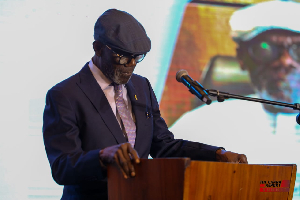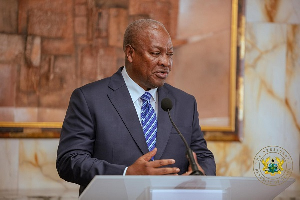Director-General of the Ghana AIDS Commission (GAC), Dr Angela El-Adas, has revealed that Ghana’s HIV prevalence has stabilized over the last five years and is currently at an all time low of 1.37percent in 2012.
This according to her shows a decline from nearly 2.0 percent in 2005, adding that the nation had also recorded declines in prevalence among key populations and significant reductions in new infections among the youth, pregnant women and children.
Dr El-Adas who was speaking at the launch of the third National HIV and AIDS Research Conference (NHARCON) in Accra said central to the sustained success was the adoption of an effective national strategic plan which was based on sound evidence.
She noted that the generation and use of empirical evidence informed planning, policy, programming and management of Ghana’s HIV response.
Dr El-Adas said partnership by the Ghana AIDS Commission with various sectors of government, academia, civil society, the private sector, the media, among others, have inured towards the development of the single evidence-based and result oriented strategic plan for HIV and AIDS which currently guides their response.
The approach she said had resulted in the strategic investment within priority impact areas with objectives to reduce new HIV infections by 50 percent by 2015, with elimination of mother to child transmission (MTCT) of HIV from 30 percent to less than 5 percent by 2015, expanding quality treatment for Persons Living with HIV and mitigating the effects of HIV by eliminating stigma and discrimination.
However, Dr El-Adas said efforts to achieve the said objectives could not be done without the provision of high- impact HIV prevention services to key populations such as sex workers, men who have sex with men (MSM), prisoners and people who inject themselves with drugs (PWID).
“Therefore, we will continue to scale up HIV prevention services and achieve 80 percent of key populations,” she said.
She commended the media and civil society partners, who raised relevant issues for discussions and asked pertinent questions that drew attention to gaps in the HIV response.
Dr Celia Woodfill, Country Director of Centre for Disease Control, said Ghana’s HIV response a decade ago was to fight HIV/AIDS from reaching epidemic proportions and that had stabilised prevalence rate over the past five years. This she attributed to the adoption of an effective national strategic plan based on sound evidence.
The 3rd NHARCON themed: “Utilizing Strategic Information for an Effective National Response”, was aimed at providing a platform for stakeholders to share information and experiences, discuss future research priorities and disseminate findings from relevant HIV /AIDS research undertaken in Ghana, among others.
The conference would bring together implementing partners, development partners, policymakers and all stakeholders in HIV /AIDS National response.
Health News of Wednesday, 10 July 2013
Source: dailyguideghana.com












